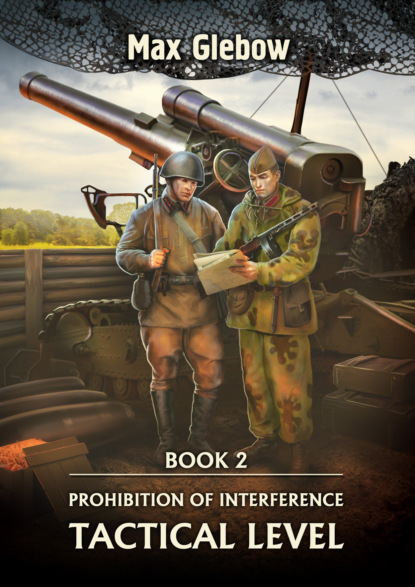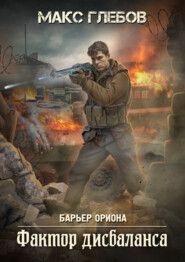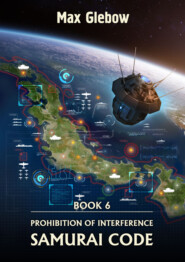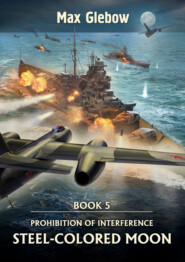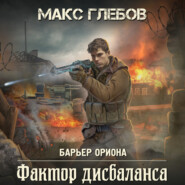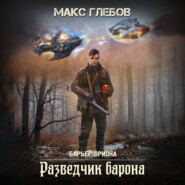По всем вопросам обращайтесь на: info@litportal.ru
(©) 2003-2025.
✖
Prohibition of Interference. Book 2. Tactical Level
Настройки чтения
Размер шрифта
Высота строк
Поля
Stalin lifted his pipe to his lips thoughtfully and began to walk around the office again.
“There is one more important point, Comrade Stalin,” Beria spoke again, “Comrade Budyonny very correctly described the purely military part of the matter, but there is also a moral-political side to this problem. The breakthrough of the staff column, along with the banner and the commander, gives us the opportunity to re-form the Sixth Army, and we have every right to assert internationally that we lost only General Ponedelin's army in the pocket. A total of almost 15,000 men broke out of the encirclement near Uman. They can become the basis on which to recreate the army of Muzychenko.”
“I will support you in this matter, Comrade Beria," Stalin nodded, taking his seat at the table again. Invite Lieutenant-General Muzychenko to see me, and consider what else, except a show trial of the former commander Ponedelin, we can do to prevent cases of cowardice and treason in the leadership of our armies.”
* * *
The Hauptmann was immediately taken away for interrogation at headquarters, but we were also immediately spoken to because we had just returned from the near German rear. A representative of the army headquarters marked on the map what we managed to see at the Kremenchuk bridgehead.
“Here, here and here, we saw some pretty big dugouts,” I showed the officer. “Most likely, they are warehouses. What is stored in them, we couldn't find out – the task was different.”
The lieutenant colonel was nodding and marking, and Shcheglov was looking at me sideways, but did not interfere. He didn't see any dugouts himself, although I mentioned them a couple of times.
“There are temporary piers on the shore, which are apparently camouflaged and not used during the day. We saw such landing points in two places, here and here,” I pointed again on the map.
“The Germans built a pontoon bridge to this island. There is a continuous movement of equipment and troops through it.”
“Where did this data come from?” The Lieutenant Colonel took his eyes off the map and looked at me carefully. “You weren't there, Junior Lieutenant.”
“I was relatively close by when I grabbed Hauptmann's boat and heard the creaking of the boardwalk and the sound of truck engines, approaching from the west bank. You can check with the prisoner, Comrade Lieutenant Colonel. He must know this bridge exists – he drove over it before he got on the boat.”
The staff officer nodded, made a note on the map and put a question mark next to it.
“Anything else, Junior Lieutenant?”
“Comrade Lieutenant Colonel, we saw that the Germans have well established the crossing to the bridgehead of infantry units and even light artillery. They do this with boats and rafts, and do just fine without a bridge for this purpose. Nevertheless, the field interrogation of the prisoner showed that engineering units were accumulating on the west bank, as well as everything necessary to build a high-capacity pontoon crossing. Such a bridge can only be needed for tanks and other heavy equipment, which means that the Germans are preparing to move tank divisions to the Kremenchuk bridgehead… ”
“Junior Lieutenant,” the staff officer interrupted me, “so far these are just your fantasies. Do you have any proof of what you say?”
“Comrade Lieutenant Colonel, allow me to report,” Shcheglov intervened.
“I'm listening to you.”
“We have only preliminary observations. We were performing another task and could not be distracted by anything else. To get evidence of the Germans preparing a crossing for tanks, additional reconnaissance is needed.”
“So do the reconnaissance, Captain. You're in command of the reconnaissance company, so you're in charge.”
“The problem is that even if we find evidence of Junior Lieutenant Nagulin's words, the army won't have time to do anything. With the equipment that the Germans have already deployed to build the crossing, they will manage to build the bridge in a few days, if not a day, and then they will move the tanks to the bridgehead in one night.”
“Captain, you seem to have caught your subordinate's fantasies,” grinned the Lieutenant Colonel, but he continued to look at us very carefully. “I don't understand what you want from me yet.”
“Ten minutes of your time, Comrade Lieutenant Colonel. We are ready to lay out a plan for a reconnaissance and sabotage raid, but we're going to need artillery support.”
“Don't you have an artillery regiment in your division, Captain? Why do you turn to a representative of the army headquarters for this?”
“Because only Army HQ has howitzers that can reach the targets we need and suppress them reliably. I'm talking about B-4, Comrade Lieutenant Colonel.”
* * *
“Well, Vitaly Nikolayevich, has the Special Department interrogated the German prisoner?” The commander of the 38th Army turned to the Chief of Staff who entered the room.
“That's right, Nikolai Vladimirovich, and not only him. The scouts from the 300th Division who took the Hauptmann also saw something. Lieutenant Colonel Semenov interviewed them and mapped the data and the latest changes in the situation. Here, take a look.”
Major General Feklenko leaned over the map unfolded on the table by the Chief of Staff.
“Guderian still advanced,” the army commander stated grimly, looking at the blue arrows of German Panzer Group strikes stretching from the north, “It is now obvious that he wants to encircle the entire Southwestern Front. But I see that his advance has slowed down, so let's hope his tanks don't stab us in the back.”
“Our troops are entrenched in the area of Nizhyn and Romny,” replied the Chief of Staff without much confidence in his voice, “and from the east the Bryansk front of Eryomenko strikes against the Germans who have broken through. We will hold them, Comrade Commander of the Army.”
“All right, Vitaly Nikolayevich, let's get back to the business of our army. What do we have here? A bridge from the west bank to Ulitochnyi Island?”
“That's right. At night the scouts heard sounds characteristic of vehicles crossing the pontoon bridge, and the German prisoner confirmed this information. This bridge is light, tanks will not pass through, and there is no crossing from the island to our shore yet either.”
“Do you know the exact coordinates of the bridge?”
“The prisoner was unable to specify them. He was being transported at night by truck, and the scout who managed to get relatively close did not see the crossing at all, he heard only the sound of engines.”
“That's bad. What about the weather? Will the aviation be able to work? The bridge must be destroyed as soon as possible.”
“The weather is no good, Nikolai Vladimirovich. Low clouds and rain. Aviators don't expect improvement for another couple of days.”
“We're like blind men,” Feklenko grumbled unhappily, “at least the scouts brought this Hauptmann, the map was updated at once. Is he from the 125th Infantry Division, by the way? So they're moving them from Uman to us too.”
“The Germans keep increasing the number of infantry on the bridgehead. The scouts also saw light artillery. It was being moved by boats from Ulitochnyi Island.”
“Well, we're getting stronger too,” Feklenko objected, “We did get some reserves, though it was a little late. We will not be able to eliminate the bridgehead, but now, if the Germans hit us with their infantry toward Guderian, we will hold them off. We must hold them.”
“And if they move tanks?” cautiously asked the chief of staff.
“How? Without a bridge, it is possible, of course, to deliver a few tanks to the bridgehead, but on the scale of the proposed offensive it is not serious.”
“The scouts insist that the Germans are preparing to build a large bridge. They have no proof, just vague premonitions, but during the interrogation the prisoner confirmed that he saw numerous engineer units on the west bank and a significant accumulation of pontoons and construction materials that could be used to build a crossing.”
The Army Commander thought about it.
“Well, okay, even so… What will they move over the bridge? Heavy artillery? They don't have any tanks here, not even on the west bank. As long as there was flying weather, air reconnaissance did not report enemy tank units.”
“I don't know, Nikolai Vladimirovich,” said the chief of staff, “But I can say one thing: if the Germans are going to build a bridge, it means they will have something to move over it.”
“You and me, Vitaly Nikolaevich, seem to be reading the tea-leaves,” the Army Commander shook his head.
“Lieutenant Colonel Semenov reported to me that a proposal was received from the scouts of the 300th Division. They want to go back to where they took the Hauptmann, but with other goals.”
“So let them operate. Such an operation does not require approval in the army headquarters,” Feklenko was surprised.
“They want to go on a raid for a few days and take a portable radio transmitter with them. They will sit on the bank of the river or on one of the small islands, and keep watch. If the Germans start building the crossing, they will report the exact coordinates of the bridge and offer to hit it with howitzers of special power. But to correct the fire they need to establish cooperation with the artillery regiment of the Reserve of the Supreme High Command, and no one will talk to them there without your order.”
“It's a big risk,” Feklenko hesitated, “To reach the Dnieper, the artillerymen would have to pull the B-4 howitzers almost to the very front line. As soon as they open fire, the Germans will start a counter-battery fight, and the artillerymen will have to shoot for a long time – it is not easy to hit at such a distance, even with the help of a spotter.”
“There is one more important point, Comrade Stalin,” Beria spoke again, “Comrade Budyonny very correctly described the purely military part of the matter, but there is also a moral-political side to this problem. The breakthrough of the staff column, along with the banner and the commander, gives us the opportunity to re-form the Sixth Army, and we have every right to assert internationally that we lost only General Ponedelin's army in the pocket. A total of almost 15,000 men broke out of the encirclement near Uman. They can become the basis on which to recreate the army of Muzychenko.”
“I will support you in this matter, Comrade Beria," Stalin nodded, taking his seat at the table again. Invite Lieutenant-General Muzychenko to see me, and consider what else, except a show trial of the former commander Ponedelin, we can do to prevent cases of cowardice and treason in the leadership of our armies.”
* * *
The Hauptmann was immediately taken away for interrogation at headquarters, but we were also immediately spoken to because we had just returned from the near German rear. A representative of the army headquarters marked on the map what we managed to see at the Kremenchuk bridgehead.
“Here, here and here, we saw some pretty big dugouts,” I showed the officer. “Most likely, they are warehouses. What is stored in them, we couldn't find out – the task was different.”
The lieutenant colonel was nodding and marking, and Shcheglov was looking at me sideways, but did not interfere. He didn't see any dugouts himself, although I mentioned them a couple of times.
“There are temporary piers on the shore, which are apparently camouflaged and not used during the day. We saw such landing points in two places, here and here,” I pointed again on the map.
“The Germans built a pontoon bridge to this island. There is a continuous movement of equipment and troops through it.”
“Where did this data come from?” The Lieutenant Colonel took his eyes off the map and looked at me carefully. “You weren't there, Junior Lieutenant.”
“I was relatively close by when I grabbed Hauptmann's boat and heard the creaking of the boardwalk and the sound of truck engines, approaching from the west bank. You can check with the prisoner, Comrade Lieutenant Colonel. He must know this bridge exists – he drove over it before he got on the boat.”
The staff officer nodded, made a note on the map and put a question mark next to it.
“Anything else, Junior Lieutenant?”
“Comrade Lieutenant Colonel, we saw that the Germans have well established the crossing to the bridgehead of infantry units and even light artillery. They do this with boats and rafts, and do just fine without a bridge for this purpose. Nevertheless, the field interrogation of the prisoner showed that engineering units were accumulating on the west bank, as well as everything necessary to build a high-capacity pontoon crossing. Such a bridge can only be needed for tanks and other heavy equipment, which means that the Germans are preparing to move tank divisions to the Kremenchuk bridgehead… ”
“Junior Lieutenant,” the staff officer interrupted me, “so far these are just your fantasies. Do you have any proof of what you say?”
“Comrade Lieutenant Colonel, allow me to report,” Shcheglov intervened.
“I'm listening to you.”
“We have only preliminary observations. We were performing another task and could not be distracted by anything else. To get evidence of the Germans preparing a crossing for tanks, additional reconnaissance is needed.”
“So do the reconnaissance, Captain. You're in command of the reconnaissance company, so you're in charge.”
“The problem is that even if we find evidence of Junior Lieutenant Nagulin's words, the army won't have time to do anything. With the equipment that the Germans have already deployed to build the crossing, they will manage to build the bridge in a few days, if not a day, and then they will move the tanks to the bridgehead in one night.”
“Captain, you seem to have caught your subordinate's fantasies,” grinned the Lieutenant Colonel, but he continued to look at us very carefully. “I don't understand what you want from me yet.”
“Ten minutes of your time, Comrade Lieutenant Colonel. We are ready to lay out a plan for a reconnaissance and sabotage raid, but we're going to need artillery support.”
“Don't you have an artillery regiment in your division, Captain? Why do you turn to a representative of the army headquarters for this?”
“Because only Army HQ has howitzers that can reach the targets we need and suppress them reliably. I'm talking about B-4, Comrade Lieutenant Colonel.”
* * *
“Well, Vitaly Nikolayevich, has the Special Department interrogated the German prisoner?” The commander of the 38th Army turned to the Chief of Staff who entered the room.
“That's right, Nikolai Vladimirovich, and not only him. The scouts from the 300th Division who took the Hauptmann also saw something. Lieutenant Colonel Semenov interviewed them and mapped the data and the latest changes in the situation. Here, take a look.”
Major General Feklenko leaned over the map unfolded on the table by the Chief of Staff.
“Guderian still advanced,” the army commander stated grimly, looking at the blue arrows of German Panzer Group strikes stretching from the north, “It is now obvious that he wants to encircle the entire Southwestern Front. But I see that his advance has slowed down, so let's hope his tanks don't stab us in the back.”
“Our troops are entrenched in the area of Nizhyn and Romny,” replied the Chief of Staff without much confidence in his voice, “and from the east the Bryansk front of Eryomenko strikes against the Germans who have broken through. We will hold them, Comrade Commander of the Army.”
“All right, Vitaly Nikolayevich, let's get back to the business of our army. What do we have here? A bridge from the west bank to Ulitochnyi Island?”
“That's right. At night the scouts heard sounds characteristic of vehicles crossing the pontoon bridge, and the German prisoner confirmed this information. This bridge is light, tanks will not pass through, and there is no crossing from the island to our shore yet either.”
“Do you know the exact coordinates of the bridge?”
“The prisoner was unable to specify them. He was being transported at night by truck, and the scout who managed to get relatively close did not see the crossing at all, he heard only the sound of engines.”
“That's bad. What about the weather? Will the aviation be able to work? The bridge must be destroyed as soon as possible.”
“The weather is no good, Nikolai Vladimirovich. Low clouds and rain. Aviators don't expect improvement for another couple of days.”
“We're like blind men,” Feklenko grumbled unhappily, “at least the scouts brought this Hauptmann, the map was updated at once. Is he from the 125th Infantry Division, by the way? So they're moving them from Uman to us too.”
“The Germans keep increasing the number of infantry on the bridgehead. The scouts also saw light artillery. It was being moved by boats from Ulitochnyi Island.”
“Well, we're getting stronger too,” Feklenko objected, “We did get some reserves, though it was a little late. We will not be able to eliminate the bridgehead, but now, if the Germans hit us with their infantry toward Guderian, we will hold them off. We must hold them.”
“And if they move tanks?” cautiously asked the chief of staff.
“How? Without a bridge, it is possible, of course, to deliver a few tanks to the bridgehead, but on the scale of the proposed offensive it is not serious.”
“The scouts insist that the Germans are preparing to build a large bridge. They have no proof, just vague premonitions, but during the interrogation the prisoner confirmed that he saw numerous engineer units on the west bank and a significant accumulation of pontoons and construction materials that could be used to build a crossing.”
The Army Commander thought about it.
“Well, okay, even so… What will they move over the bridge? Heavy artillery? They don't have any tanks here, not even on the west bank. As long as there was flying weather, air reconnaissance did not report enemy tank units.”
“I don't know, Nikolai Vladimirovich,” said the chief of staff, “But I can say one thing: if the Germans are going to build a bridge, it means they will have something to move over it.”
“You and me, Vitaly Nikolaevich, seem to be reading the tea-leaves,” the Army Commander shook his head.
“Lieutenant Colonel Semenov reported to me that a proposal was received from the scouts of the 300th Division. They want to go back to where they took the Hauptmann, but with other goals.”
“So let them operate. Such an operation does not require approval in the army headquarters,” Feklenko was surprised.
“They want to go on a raid for a few days and take a portable radio transmitter with them. They will sit on the bank of the river or on one of the small islands, and keep watch. If the Germans start building the crossing, they will report the exact coordinates of the bridge and offer to hit it with howitzers of special power. But to correct the fire they need to establish cooperation with the artillery regiment of the Reserve of the Supreme High Command, and no one will talk to them there without your order.”
“It's a big risk,” Feklenko hesitated, “To reach the Dnieper, the artillerymen would have to pull the B-4 howitzers almost to the very front line. As soon as they open fire, the Germans will start a counter-battery fight, and the artillerymen will have to shoot for a long time – it is not easy to hit at such a distance, even with the help of a spotter.”





